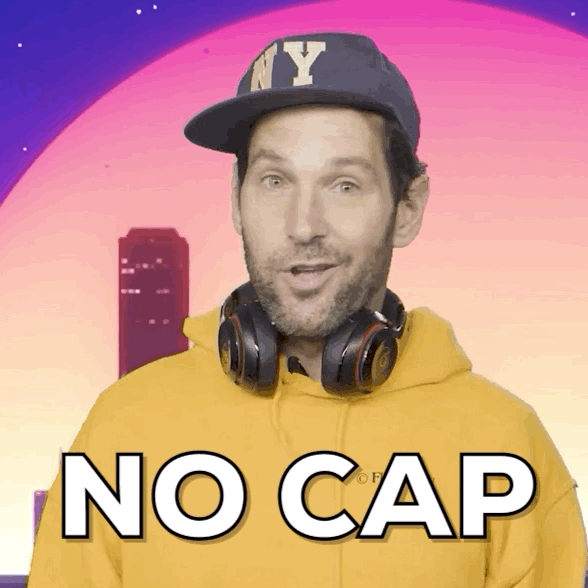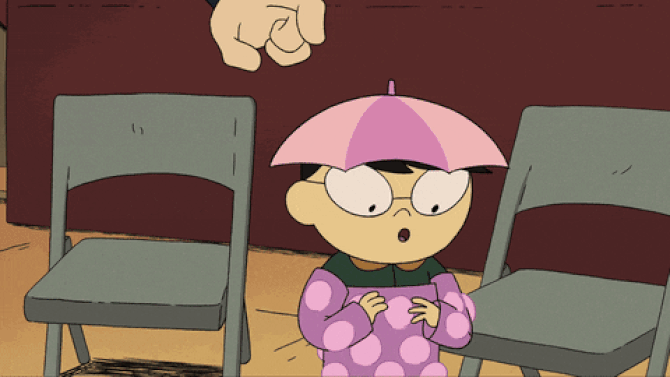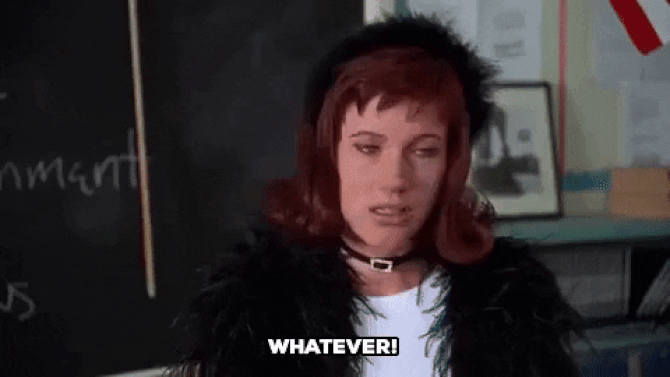It’s 2021, Gen Z-ers and TikTok seemed to have taken over the world, or the internet at least. With their exclusive lingo used ubiquitously on social media sites, being called a boomer might just be the biggest insult for some. In a world dominated by meme culture, your grasp of new slang can make or break your reputation as a supposedly cool person, or in their terms—passing the vibe-check.
Though many of these phrases have been around for decades, social media platforms have revolutionised and spread the language more rapidly than ever before. Here are six Gen Z slang words and how to use them:
1. No Cap

Image: Giphy
If you see #nocap flooding the comment section, then you’re doing something right. The phrase is often used to express sincerity, as it translates into “no lie” which is basically the same thing as “I swear to God”. When used, the person genuinely wants you to know that they are being honest.
Here’s an example:
That dress on you is such a head-turner, no cap.
Nowadays the Gen Z-ers are taking it a step further by replacing the word cap with the emoji—some say it’s because the three-letter word just takes up “too much time”.
2. Wig

Image: Giphy
As a modern slang often used on social media platforms, the phrase definitely packs a punch. Wig is a synonym used by Zoomers for being enamoured with someone/something so much that one’s hairpiece can fly off one’s head. That’s right, fly off. It is not just an accessory—it’s a feeling.
Here’s an example when Katy Perry and an American Idol contestant casually conversed using the phrase—which instantly became the source of a flurry of memes and fan reactions:
3. Yeet

Image: Giphy
On the surface, the word “yeet” may look like it’s just another nonsensical internet word used without any context. But what does it actually mean and how do you use it? According to Cambridge Dictionary, the phrase is used when something is thrown with a lot of force. You can technically use it whenever you want to crack a laugh out of everyone, although you should probably avoid using it in a professional setting.
Here’s an example:
He just grabbed my ice cream and yeeted it into the lake.
4. L

Image: Giphy
Unlike the year 1995, the alphabet W no longer stands for whatever. Similar to that, L doesn’t stand for loser as some might claim it to be. The correct word that represents the letter is “loss”, with origins from the sports industry where “wins” and “losses” are abbreviated to W’s and L’s for spreadsheets and boxscores. Referenced from that vernacular, a common phrase used today is to ‘take the loss’ or, even shorter form, ‘take the L’.
Here’s an example:
Candice really took the L on that math exam.
5. UwU

Image: Giphy
Now with Japanese animation (anime) becoming more mainstream across the globe, we’re seeing more new terms being appropriated from that sub-culture—“UwU” or “UωU” is one of the many Gen Z phrases that is derived from it. Typically, the term indicates quirky happiness, or what others might call the kawaii energy. The three-letter word is similar to millennials’ favourite smiley face “:3” (if you know, you know). The two capitalised u’s serve as eyes while the w is supposedly a pout.
Here’s an example taken from Twitter when a certain user finally realises what it signifies:
Me, knowing “uwu” is a facial expression and not a soundAlso me: https://t.co/cONsjZnvjz
— kylie minogue stan (@hehechrissy) August 27, 2018
6. Karen

Image: Giphy
As the Karen meme gains traction on the internet, people are becoming increasingly confused over its definition. The #KARENALERT that you see on your feed throughout 2020 is NOT about a certain someone who became a worldwide sensation overnight. Rather, it is a term used for obnoxious women who use their privilege/entitlement to demand their own way.
Here’s an example of the word is used:
I just published “As Millions Die, Amber Heard Complains About Having to Go to Court Over a Situation She Created” https://t.co/JQCLnQOnQY #AmberHeard is the quintessential #Karen.#JohnnyDepp #MeToo #JusticeForJohnnyDepp
— Carla Paola (@_Carla_Paola) December 19, 2020
For more stories on culture, click here
| SHARE THE STORY | |
| Explore More |




